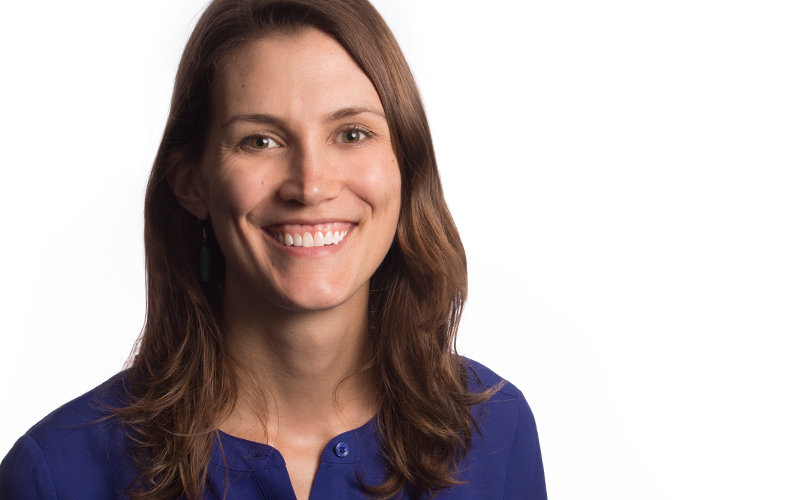
Alison Kanosky was drawn to American studies for two reasons: its interdisciplinary approach and the growing amount of critical and political work coming from the field.
Teaching such courses as “American Character” and “Theory and Method of American Studies” this fall, Cal State Fullerton’s new assistant professor focuses her own research on how defense and incarceration policies affect communities.
Kanosky received her doctorate and master’s degree from Yale University and her bachelor’s degree from Northwestern University — all in American studies.
What inspired you to go into the field of American studies?
I began my career in American studies at the ripe age of 19, when I was an undergraduate student at Northwestern University. I took an American history survey class with the historian Nancy MacLean that incorporated some American studies methods, and I sat in the front row every day absolutely mesmerized with how interesting this approach was. I went to the professor’s office hours often and she suggested that I look into this program called American studies, which I had never heard of before. I began my immersion in American studies then, and fell in love with how this interdisciplinary fields brings history, literature, sociology and anthropology (among other fields) together.
What are your research interests?
Using ethnographic and historical analysis, I study how communities experience and interpret economic, political and cultural change. In particular, I am interested in how communities respond to government policies that relate to defense and incarceration. Most of my research has focused on how military facilities and prisons impact communities where they are sited.
What do you hope students will learn from your classes?
I hope that my students will learn that American history and American society is far more nuanced and complex than they initially may have thought. I hope that they will feel inspired to talk to their own communities to better understand the diverse and complex voices that surround them, and to learn about the rich history that exists in their own community, family, etc. I hope that they will gain confidence in themselves as critical thinkers, and that they will apply what they learn in my classroom to their everyday lives.
What would you like the general public to know about your research areas?
The concept of state power can often seem really abstract and unclear. My work strives to make these abstract concepts of power clear by focusing on how people see the power of the state on the ground in their everyday lives. My research examines how communities understand, accept and resist governmental policies of defense, incarceration and security in their day-to-day lives.